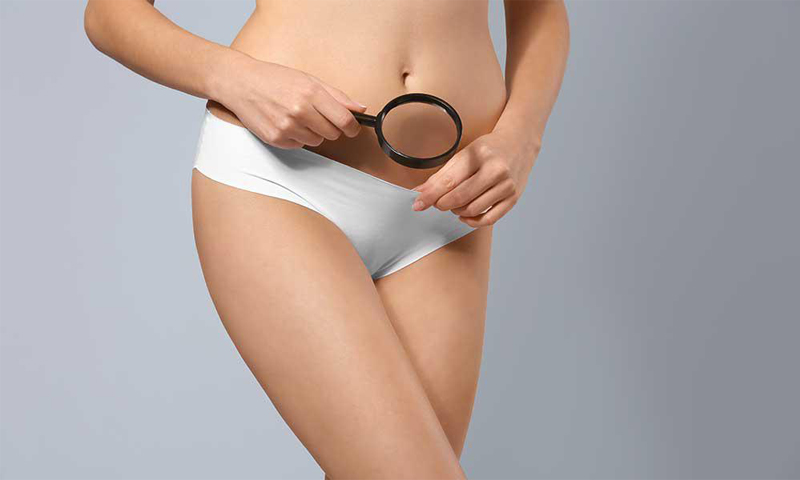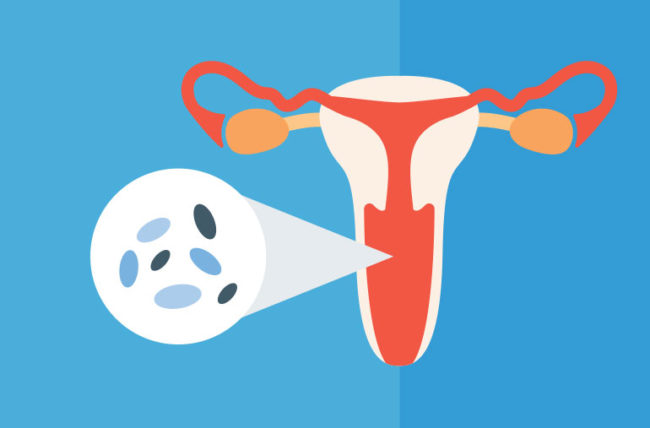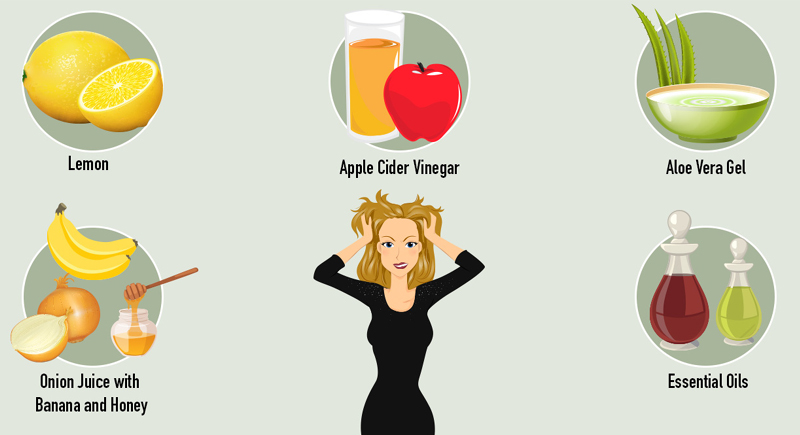We have both medicinal and home remedies for itching in the private parts. We really do feel for the females with vulvar or vaginal irritation which can be pretty bothersome at times.
Vaginal irritation or itching is sometimes referred to as a painful symptom that is caused by menopause, irritation causing substance or infections.
It’s a possibility for women with STD’s or skin disorders that they can get vaginal itching.
Most types of vaginal irritation are of no concern but when it occurs persistently, it is time to call for a doctor’s appointment and by the doctor we meant Gynecologist.
The doctors around the world perform physical evaluation first for your vaginal itching which includes some testing too. That’s how you get the proper treatment to alleviate the symptoms.
8 Main Causes of Vaginal Irritation

Some possible reasons for your vagina to be itchy while the redness also occurs in the surrounding area are:
Irritants:
Vaginal Irritation? Of course, there is an irritant involved! These are the chemicals that can cause vaginal irritation after triggering an allergic reaction. This may also cause redness of the skin or rash on the body including the vagina.
Stay away from these types of chemicals to avoid vaginal irritation.
- Soap
- Body Sprays for females
- Bubble bath
- Creams
- Topical contraceptives
- Detergent
- Fabric softeners
Females who have diabetes or urinary tract infection may discharge urine that can also cause vaginal irritation and itching.
Bacterial Vaginosis:

Is a common reason for vaginal irritation, it’s like a yeast infection where a certain type of bacteria lowers the number of good bacteria in the vagina. The condition is sometimes asymptomatic but when the symptoms occur it includes vaginal irritation and bad vaginal odor with dully grey or white discharge.
Sexually Transmitted Diseases:
Various types of STDs can transfer through unprotected sexual intercourse which may cause vaginal irritation. Some of the famous STD’s are:
- Genital Warts
- Herpes
- Gonorrhea
- Chlamydia
- Trichomoniasis
Vulvar Cancer:
In minor cases, vaginal irritation could be the symptom of vulvar cancer. Cancer usually develops in the vulva, an external part of the vagina. This will spread to the inner and outer lips of the vagina to the opening of the vagina and the clitoris.
Vulva cancer is mostly without symptoms, some of the late occurring symptoms are abnormal bleeding, pain in the vulvar area, and vaginal irritation. You should get it checked while the disease on the early stage of progression.
Skin Diseases:
Skin diseases like eczema, psoriasis, and redness in the genital region are itching causing. When you speak about Eczema, there is atopic dermatitis which is a rash found in people with asthma and allergies like conditions. You will find a scaly texture on that skin which may spread to the vagina.
Yeast Infection:
It’s a naturally occurring fungus that also finds a growing environment in the vagina. This isn’t something that causes the problem but you should get it checked for it may cause uncomfortable itching and infections.
The infection that has been led is known as Vaginal Yeast Infection which occurs to most women in their lifetime.
Yeast infection is caused by the use of some antibiotics which tend to destroy the good bacteria in the vagina. These bacteria keep the growth of yeast in check and sustain a proper pH balance.
The growth of yeast in the vagina results in itching, burning sensation, and lumpy discharge at times.
Menopause:

There is no denying about women experiencing vaginal irritation at the early and late stages of menopause.
This is mainly because of the reduced estrogen levels during menopause, in some females, it can leads to Vaginal Atrophy (thinning of the mucosal layer which will increase dryness). This dryness comes with itching and vaginal irritation.
Stress:
No matter what kind of stress you are taking (physical or emotional), vaginal irritation becomes quite common at such times. The stress is known to weaken the immune system which leaves the vaginal ground more prone to infections.
Diagnosis of Vaginal Irritation:
The primary diagnosis is to assess if there is a cycle of scratch, itch, or splitting of the skin. The secondary evaluation involves assessing infections in case of which symptoms may or may not be present.
It’s not recommended to keep it dry or itchy for longer, calling your doctor is the better option instead.
Earlier investigations include blood tests, urine tests, and vaginal swab tests to see the discharge of any unusual fluid.
9 Healthy Ways to Manage and Treat Vaginal Irritation

These 9 ways are approved by the medical community which includes the use of different types of medication and home remedies.
The treatment style is given by Dr. Elizabeth who is renowned for solving female health issues.
Cortisone Creams or Ointments: After washing the vagina, apply these creams as instructed on the label.
Bathing in Soda (Bicarbonate): Was the vulva once or twice a day for 5-10 minutes in a bathtub. Before that, add two tablespoons of bicarbonate of soda to the water. Let it dry and apply the cream or ointments prescribed to you by the doctor.
Wear Cotton Undergarments: Cotton fabric doesn’t leave any traces of dirt or a small piece of fabric which in the case of Nylon material usually be causing itching.
Avoid Using Soap: While washing down the vulva, make sure to rinse it with water only and not the perfumed soaps or bath products.
Swim in Salt Water: That being said, avoid swimming in chlorinated water.
Wear Loose Pants: Let your vagina breathe, avoid tight fitted jeans or g-strings which invites the infectious environment.
Use Menstrual Products Cautiously: Always use 100% cotton and sanitary pads/tampons. Changing them frequently should not be forgotten at any stage.
Pass Urine in a Correct Way: The best way to do your business is by leaning forward, this will help avoid the burning sensation and stops its dripping on surroundings.
Use Natural Lubricant: Natural lubricants such as V-Tight Gel is becoming a sensation for females with a loose vagina and vaginal irritation.
Natural Therapies for Vaginal Irritation:
If you have vulval or vaginal irritation, try soaking in apple cider vinegar or tree oil and garlic. These methods are not yet being approved by scientific research but as most women found the ACV therapy beneficial to avoid vaginal odor. The longer you wait for vaginal irritation to go away, the worse it can get.
Learn Vaginal Secretion or Discharge:
Vaginal Discharge or Secretion is normal and considered healthy for every woman, because of how it keeps the vagina clean and free from dead cells.
During the menstrual cycle, this secretion could vary. The discharge of discolored red or brown matter a day or two days before your period is normal.
Some types of vaginal discharge show a change in color with an infection.
Vaginal Dryness:
To find the vagina dry and not lubricated is a problem for females, this may be because of menopause. The menopause makes the vagina dry and thin ground which sometimes makes it painful even at the time of putting tampons.
The natural lubricant to avoid vaginal dryness are olive oil, almond oil, and V-Tight Gel.
Normally, the smell of a vagina is slightly pungent and related to citrus. This may vary at different times of the menstrual cycle. Many fluids pass down to the vulva such as blood, urine, sweat, and skin oil which affect how the vagina smells.
For the unpleasant vaginal odor which might be fishy, bread or zoo-like, you must first find if there is an infection. Some bad odors form after a female has caught Sexually Transmitted Infections or the tampon was left there for a prolonged period.
Vaginal Irritation Summary:
So you finally got the answers for how to stop itching down there? Let’s revise.
Vaginal irritation is a common condition amongst females which doesn’t always mean something serious. If the itching is formed by the poor choice of clothing or menstrual products, you must avoid using such things to make it go away.
But in case of bacterial or yeast infections, the itching of the vagina doesn’t seem to go away easily and for that, a proper checkup by the doctor is required.
Also, some skin conditions can be a breeding ground for itching around the genitals which is either eczema, psoriasis, folliculitis.
If your condition is treatable the health care expert will prescribe you the antibacterial creams (medicine for itching in private parts) option or you can simply buy the natural vaginal lubricants online if it’s because of the vaginal dryness.

